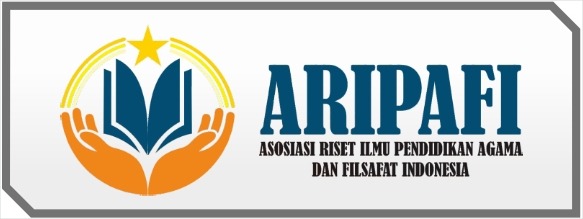Islamic Religeos Education Learning Based On Character Development At STIAMI Institute Jakarta
DOI:
https://doi.org/10.61194/ijis.v1i2.79Keywords:
Character building based education, Tabligh Congregation, Noble moralityAbstract
Education in Indonesia tends to only prepare students to be intellectually intelligent. So that results in many smart people but their behavior is not right. This shows that education is currently not able to optimally form affective aspects, so that the hope of realizing human beings who have noble, religious and complete character really requires special attention. The STIAMI Jakarta Institute of Social Sciences and Management has implemented Islamic religious education learning based on the character building method of the Tablighi congregation. Which is education based on the character building method of the Tabligh congregation by means of doing I'tikaf in the mosque for one day, 3 days, 10 days, 40 days, and 4 months for its citizens both in domestic and foreign mosques. This study aims to reveal the character-building based learning method of the Tabligh Congregation in realizing religious culture on campus. This study uses a qualitative approach with ethnographic methods and uses data analysis techniques, namely data reduction, data presentation and conclusions. Data was collected by means of participatory observation, in-depth interviews, and documentation. The research findings include (1) the profile of the STIAMI Institute, which is studied from the history of the STIAMI Institute, (2) the vision and mission, (3) and the character building based learning system of the Tablighi congregation method. So that the STIAMI Institute is known as one of the tertiary institutions that really pays attention to its citizens so that they have noble, religious, and strong character.
References
Cabrera, D., Nickson, C. P., Roland, D., Hall, E., & Ankel, F. (2022). Distributed Autonomous Organization of Learning: Future Structure for Health Professions Education Institutions. JMIR Medical Education, 8(1). https://doi.org/10.2196/28770
Carneiro, R. (2013). Living by learning, learning by living: The quest for meaning. International Review of Education, 59(3), 353–372. https://doi.org/10.1007/s11159-013-9355-3
Cilliers, J., Dunford, E., & Habyarimana, J. (2022). What Do Local Government Education Managers Do to Boost Learning Outcomes? World Bank Economic Review, 36(3), 629–645. https://doi.org/10.1093/wber/lhac001
Connor, J. P., & Troendle, K. (2007). Perspectives on the dental school learning environment: theory X, theory Y, and situational leadership applied to dental education. Journal of Dental Education, 71(8), 977–982. https://www.scopus.com/inward/record.uri?eid=2-s2.0-35148896309&partnerID=40&md5=fa5669ba6d55a504ffa76730e2f46785
Demirören, M., & Atılgan, B. (2023). Impacts of service learning-based social responsibility training on medical students. Advances in Physiology Education, 47(2), 166–174. https://doi.org/10.1152/ADVAN.00049.2022
Han, S.-H., Grace Oh, E., & “Pil” Kang, S. (2022). Social Capital Leveraging Knowledge-Sharing Ties and Learning Performance in Higher Education: Evidence From Social Network Analysis in an Engineering Classroom. AERA Open, 8. https://doi.org/10.1177/23328584221086665
Handayani Tyas, E., & Naibaho, L. (2020). Building Superior Human Resources through Character Education (Vol. 11864, pp. 11864–11873).
Liu, Y., Wang, Y., Zhao, H., Ao, Y., & Yang, L. (2020). Influences of building characteristics and attitudes on water conservation behavior of rural residents. Sustainability (Switzerland), 12(18). https://doi.org/10.3390/su12187620
Lundgren, L., Crippen, K. J., & Bex II, R. T. (2022). Social Media Interaction as Informal Science Learning: a Comparison of Message Design in Two Niches. Research in Science Education, 52(1). https://doi.org/10.1007/s11165-019-09911-y
Molina-Torres, M.-P. (2022). Project-Based Learning for Teacher Training in Primary Education. Education Sciences, 12(10). https://doi.org/10.3390/educsci12100647
Serafim-Silva, S., Spers, R. G., Vázquez-Suárez, L., & Ramírez, C. P. (2022). EVOLUTION OF BLENDED LEARNING AND ITS PROSPECTS IN MANAGEMENT EDUCATION. International Journal of Professional Business Review, 7(1). https://doi.org/10.26668/businessreview/2022.v7i1.291
Sitti Mania, H. (2018). Evaluasi Pelaksanaan Program Character Building Training di Universitas Islam Negeri Alauddin Makassar. ISLAMIC COUNSELING Jurnal Bimbingan Konseling Islam, 2(1). https://doi.org/10.29240/jbk.v2i1.465
Subedi, N., Hirachan, N., Paudel, S., Shrestha, B., Pradhan, A., Subedee, A., & Li, X. (2022). The effectiveness of online team-based learning in introduction to medical ethics education for medical students at a medical college of Nepal: a pilot study. BMC Medical Education, 22(1). https://doi.org/10.1186/s12909-022-03813-w
Trullàs, J. C., Blay, C., Sarri, E., & Pujol, R. (2022). Effectiveness of problem-based learning methodology in undergraduate medical education: a scoping review. BMC Medical Education, 22(1). https://doi.org/10.1186/s12909-022-03154-8
Wang, J. S.-H., Chui, C. H.-K., Jordan, L., & Chan, K. S.-K. (2022). An Experiential Learning-Based Integrated Policy Advocacy Education Model in Hong Kong: What Works in a Non-Western and Partial Democratic Context? Journal of Social Work Education, 58(2), 346–364. https://doi.org/10.1080/10437797.2020.1817818
Zhao, X., & Pan, W. (2022). The characteristics and evolution of business model for green buildings: a bibliometric approach. Engineering, Construction and Architectural Management, 29(10), 4241–4266. https://doi.org/10.1108/ECAM-08-2020-0657
Abdur Rahman, Jamal, Tahapan Mendidik Anak, Teladan Rasullulah SAW dalam : Irsad Baitus Salam, 2005.
Abdul Majid, Belajar dan Pembelajaran Pendidikan Agama Islam, Bandung : Remaja Rosdakarya, 2012.
Asmaun Sahlan, Pengembangan Pendidikan Agama Islam, dalam mewujudkan Budaya Relegius, (studi Multi Kasus SMAN,1,SMAN.3 dan SMA Salahudin Kota Malang
Baharudin Moh Makin, Manajemen Pendidikan islam, Malang : UIN Maliki Press, 2010.
Departemen Agama RI, Kendali Mutu Pendidikan Agama Islam, Jakarta : Dirjen Kelembagaan Agama Islam, 2003.
Depdikbud, Kurikulum SMA, Petunjuk Pelaksanaan Proses Belajar Mengajar, Jakarta: Ditjen Dikdasmen, 1994.
Muhaimin, Paradigma Pendidikan islam, Bandung : Remaja Rosda Karya, 2003
Maulana Zakariyah Al-kandahkawy,Fadhilah Amal Yogjakarta Ashaf 2016
Abudin, Nata, (2016), Ilmu Pendidikan Islam. (Jakarta: Prenada Media)120
Adlan, Abdul Jabbar, (2016), Dirasat Islamiyah, (Jakarta: Aneka Bahagia)
Ainiyah, Nur. Pembentukan Karakter Melalui Pendidikan Agama Islam. Jurnal Al-Ulum. Volume, 13 Nomor 1, Juni 2013, Hal 25-38, (source:www.journal.iaingorontalo.ac.id/index.php/au/article/view/179)
Ali, Mohamad, 2017. “Pendidikan Karakter”. Penerbit: Solopos.






